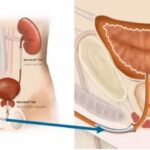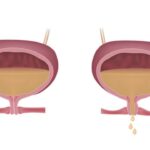
Bladder control problems, also known as urinary incontinence, can be an embarrassing and frustrating issue for many people. It affects both men and women and can be caused by a variety of factors including pregnancy, menopause, weak pelvic muscles, nerve damage, and even certain medications. The good news is that bladder control problems are treatable, and there are several steps you can take to improve and maintain bladder health.
One of the most important steps in maintaining bladder health is to stay hydrated. Drinking plenty of water can help prevent bladder infections and improve bladder function. Aim to drink at least 8 glasses of water per day and avoid drinks that can irritate the bladder, such as coffee, tea, and alcohol.
Another key step is to maintain a healthy weight. Excess weight can put pressure on the bladder and lead to incontinence. Eating a healthy diet and engaging in regular physical activity can help you maintain a healthy weight and reduce the risk of bladder problems.
Exercise is also important for maintaining bladder health. Pelvic floor exercises, also known as Kegel exercises, can help strengthen the muscles that support the bladder and reduce the risk of incontinence. To perform Kegel exercises, tighten the muscles you use to stop the flow of urine and hold for 10 seconds. Repeat this exercise 10-15 times a day.
Bladder retraining is another effective way to improve bladder control. This involves gradually increasing the amount of time between trips to the bathroom and reducing the number of times you go during the day. Over time, this helps train the bladder to hold more urine and improve control.
Medications and bladder control devices, such as pessaries or vaginal estrogen, can also be effective in treating bladder control problems. These options should be discussed with your doctor, who can help determine the best course of treatment for your individual needs.
In addition to these steps, avoiding bladder irritants, such as spicy foods and acidic drinks, can also help maintain bladder health. Smoking and the use of certain medications can also irritate the bladder and should be avoided or minimized if possible.
In conclusion, bladder control problems are common and can be caused by a variety of factors. However, there are several steps you can take to improve and maintain bladder health, including staying hydrated, maintaining a healthy weight, exercising regularly, engaging in bladder retraining, and avoiding bladder irritants. If you are experiencing bladder control problems, it is important to discuss your symptoms with your doctor to determine the best course of treatment for your individual needs.




